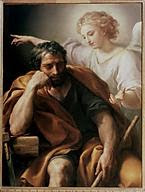What is Missional?

This Thursday I have the privilege of teaching a breakout session at the Catapult Conference in Mobile, Alabama. Catapult, is a Missional Church Conference sponsored by some of my friends in the Mobile District of the United Methodist Church. The Conference is featuring some of the Missional Church’s leading thinkers, practitioners and authors including Alan Hirsch (The Forgotten Ways; The Shaping of Things to Come; and Rejesus); Reggie McNeal (The Present Future and Missional Renaissance); and Michael Slaughter (Unlearning Church and Change the World).
The Conference is an attempt by the Mobile District and the Alabama West Florida Conference of the United Methodist Church to encourage, equip and inspire the leadership of this Conference, along with all others who will be attending, to begin to think like missionaries in our ever changing culture.
Many people have asked me what it means to be missional. The idea is different from being a missionary in the traditional sense of the word. For many of us, missionaries are those people who God specifically calls and equips to go where nobody else wants to go and spread the gospel. Being missional is something that every Christ follower is called to; it is essentially and fundamentally the call to be “the sent ones.” Being missional is being sent. It has to do with recognizing that 85% of those living in and around our churches do not, and will not “go” to church. It has to do with the call to "be Christ" to those in our circle of influence.
Author and missiologist Lesslie Newbigin has strongly influenced the movement. Here is a summary of Newbigin’s book The Gospel in a Pluralist Society from the Missional Church Network blog that may help us better understand the heart of the Missional Church movement.
Newbigin distinguished between missions and mission. The church both “does mission” and “is a mission.” Missions are specific activities undertaken by a human decision to bring the gospel to places or situations where it is not heard. These efforts have quantifiable results. But while missions activities are a part of healthy churches, they do not adequately describe the fullness of God’s work in the world.
The concept of missio Dei, however, captures Newbigin’s wider intention. The mission of the church is less a “missionary mandate” than a participation in the ongoing work of redemption. The missio Dei is God’s mission – the grand story of creation, fall, and redemption. And it is a “story,” not a list of propositions. Propositions are helpful in particular times and places, but are enculturated by language and ethos. The story, however, rooted in time and place, transcends both. When we attempt to export a set of propositions from one time and place to another, we are usually operating in a colonial mode.
The Church is less the agent of God’s mission than the locus of that mission. The missio Dei is the ongoing work of God in the world in which we are all invited to participate. More than a project out there, it is a posture wherever we live.
The church therefore becomes the place where the story is lived and mission is practiced in the real world. Newbigin identifies six characteristics of a missional community:
1. It practices corporate praise, thanksgiving, gratitude, and grace;
2. It declares truth that challenges the reigning plausibility structure
3. It establishes relationships within a local neighbourhood
4. It encourages mutual service in the priesthood of all believers
5. It expects mutual responsibility rather than individualism
6. It nurtures hope and a re-imagined vision of the future
I will try and blog from the Conference if I can.
.jpg)

Comments
Post a Comment